Food insecurity drives food choices, affects mental, physical wellness
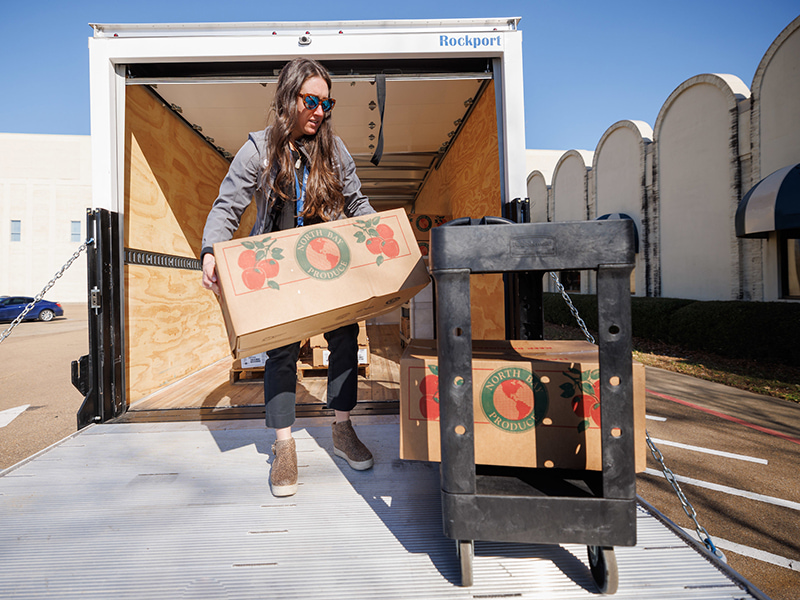
Zenani Kidd has fit the mold too well lately of those unsure where they’ll get their next meal.
“My mind will go through all the things that have happened in my life, moving into my house, going through a big struggle and not being able to feed my kids,” Kidd said, recounting a story of struggles for steady employment and affordable housing.
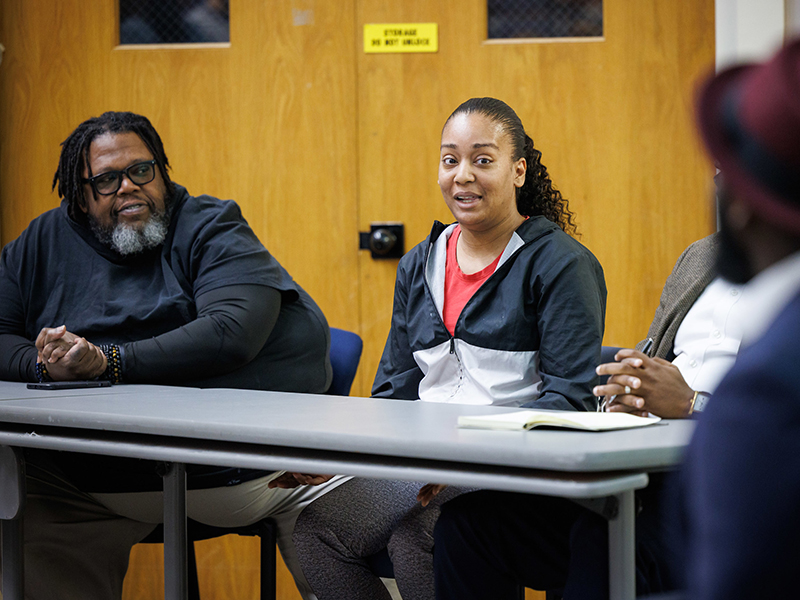
Mississippi is often at the top of food insecurity rankings, meaning large numbers of people are unsure on a daily basis whether they have enough food to feed themselves or their families. Once they do find a safe, comfortable place to eat, the location is often a sign of socioeconomic status in Mississippi, even within the Black community, said Dr. Joseph C. Ewoodzie Jr., associate professor of racial justice at Davidson College, in North Carolina.
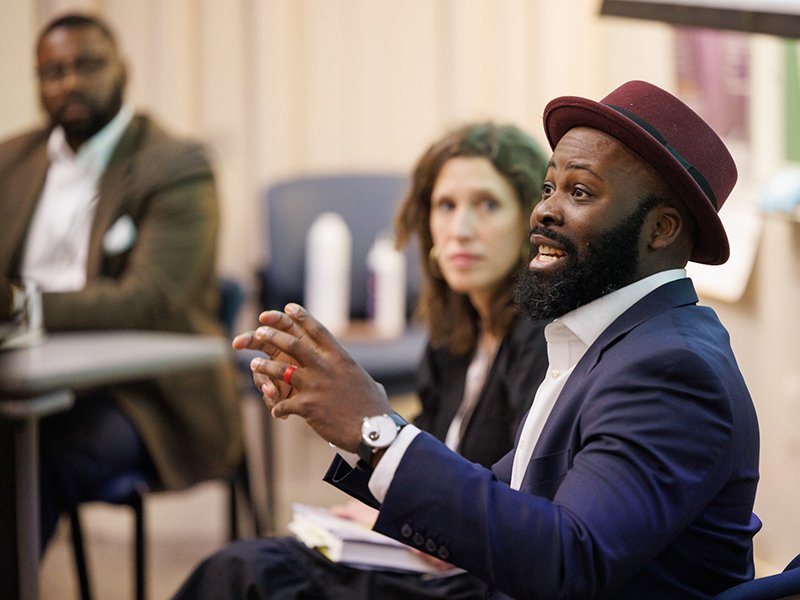
Dr. Joseph C. Ewoodzie speaks during a presentation on his book as Dr. Elizabeth Lutz, associate professor of Obstetrics and Gynecology in the School of Medicine looks on.
In 2021, Ewoodzie authored “Getting Something to Eat in Jackson: Race, Class and Food in the American South,” where he spent more than a year following a diverse group of African Americans in the city to places where they went to eat – everywhere from private, members-only civic clubs to local soup kitchens where homeless families sat to enjoy what was often their only meal of the day.
“I tried to ask them what kinds of foods are available, how do they choose the foods that are available to them and what’s the social activity of eating among these groups of people,” Ewoodzie said. “I’m really not a food scholar and so I was using what I was learning about food to understand what does it mean to be Black in the contemporary urban South.”
His remarks came as part of the John D. Bower School of Population Health’s Diversity, Equity and Inclusion Committee lecture, which shared the same title as Ewoodzie’s book. The event was funded in part by a mini-grant from the Inclusive Excellence Impact Program by the UMMC Office of Diversity and Inclusion.
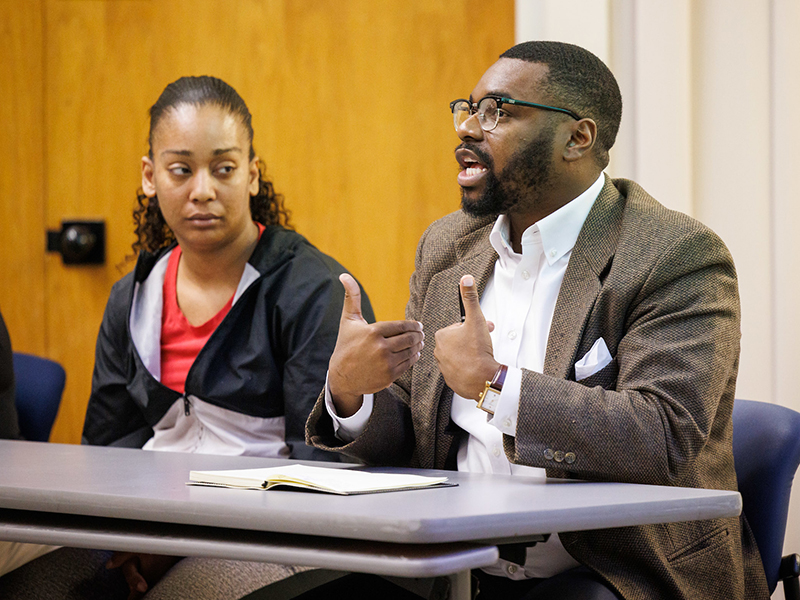
Access to balanced nutrition can’t be discounted in the larger conversation on food security, said TJ Mayfield, executive director of the Mississippi Kidney Foundation.
“We have some people who don’t have too many options,” Mayfield said. “I want to travel around the state and provide free and healthy food options for people.”
Kidd and local photographer Charles Smith were two people Ewoodzie met in his travels across town. Each represented a side of how food security can affect mental or physical health. For her part, Kidd felt relieved to share her journey along the way, even declining his offer to change her name in the book. “It makes me feel good to be expressing this to you all,” she told lecture listeners.
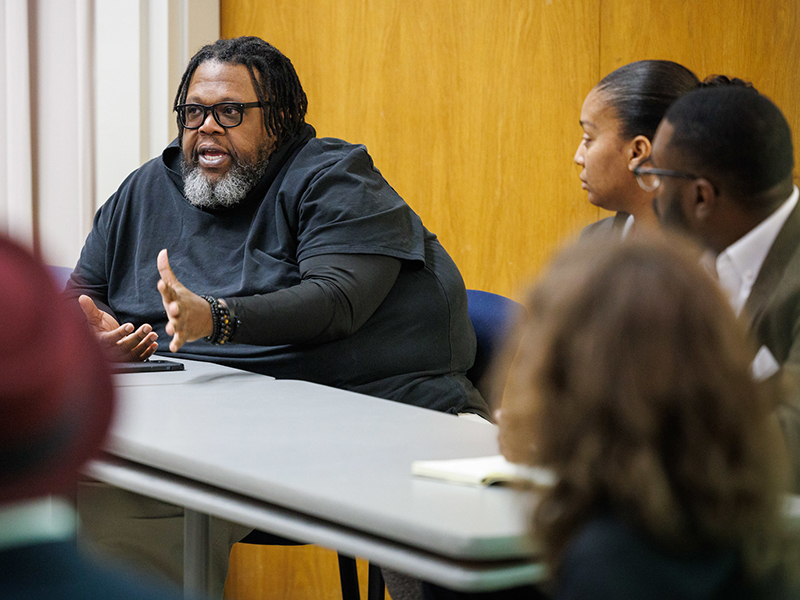
Smith met the author at a local barbecue joint, then kept in touch as he tried to become a vegan for health reasons. The difference from juicy spare ribs to tofu and quinoa was about access and more, he said.
“The cost of eating changed dramatically,” he said, adding he eventually re-embraced meat, but sparingly. “When I take carbs away from my diet, I lose weight overnight. It was an interesting journey. I’ll still order vegan foods as part of my diet and among foods I like.”
The struggle to beat higher prices at grocery stores for eggs, milk and other necessities is just as up close and personal at EversCare food pantry, part of the EversCare clinic housed at Jackson Medical Mall.
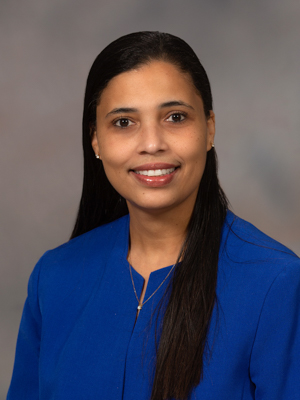
“The situation with inflation right now is definitely affecting our operation,” said Victoria Gholar, assistant dean of student affairs in SOPH, which operates the pantry.
The pantry’s base of people served includes UMMC patients referred by Medical Center providers, plus the general public for once-monthly food distribution days, thanks to a partnership with the Mississippi Food Network. When patient needs involve specific foods tied to individual health conditions such as diabetes and heart concerns, that often means low-calorie eggs, lower-sodium vegetables and high-quality proteins – which are often pricier than their “regular” counterpart foods.
“It puts everyone involved in receiving our services into having to make difficult choices about whether to buy food or keep a roof over their head,” Gholar said, adding the pantry’s recent “Dining on a Dollar” effort has helped patients find the best deals on groceries tailored to their needs.
The pantry served 7,166 people in 2022, including an average of about 272 families a month, up from about 250 during the first year of the COVID-19 pandemic in 2020. About 37 percent of those served were seniors older than 60, with another 23 percent being children and teenagers.
“Among the general public on our distribution days, we see a lot of families where the seniors are taking care of their children and the grandchildren,” Gholar said. “When we see patients in our clinic who are identified as food insecure, we are sure to provide family-centered care to help promote health for all household members.
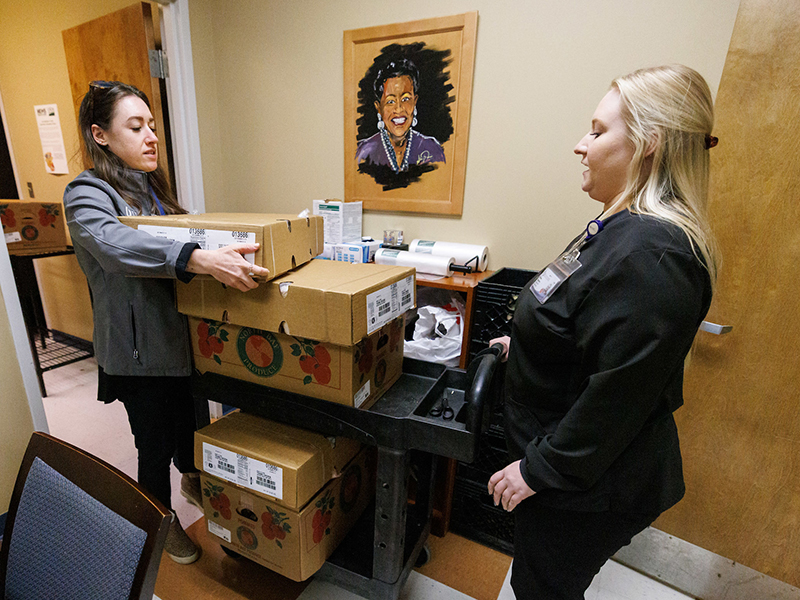
“Food is medicine. Our ultimate goal is to focus on improved health, and food security has an impact on it. The constant worrying and stress of figuring out where you’ll get your next meal can lead to worse mental and physical health.”
In the past, other nonprofits both locally and nationally and student groups from individual schools at UMMC have provided volunteers and kicked in financial support. Donations are managed through the Medical Center’s Office of Development.
“The cost of food items and basic necessities continue to rise nationwide and those additional expenses makes the services provided by the EversCare food pantry even more vital to our community,” said Jane Harkins, planned giving officer in the Office of Development.
To donate to the food pantry, click here. To volunteer, contact Gholar at 601-815-3535 or email everscare@umc.edu


